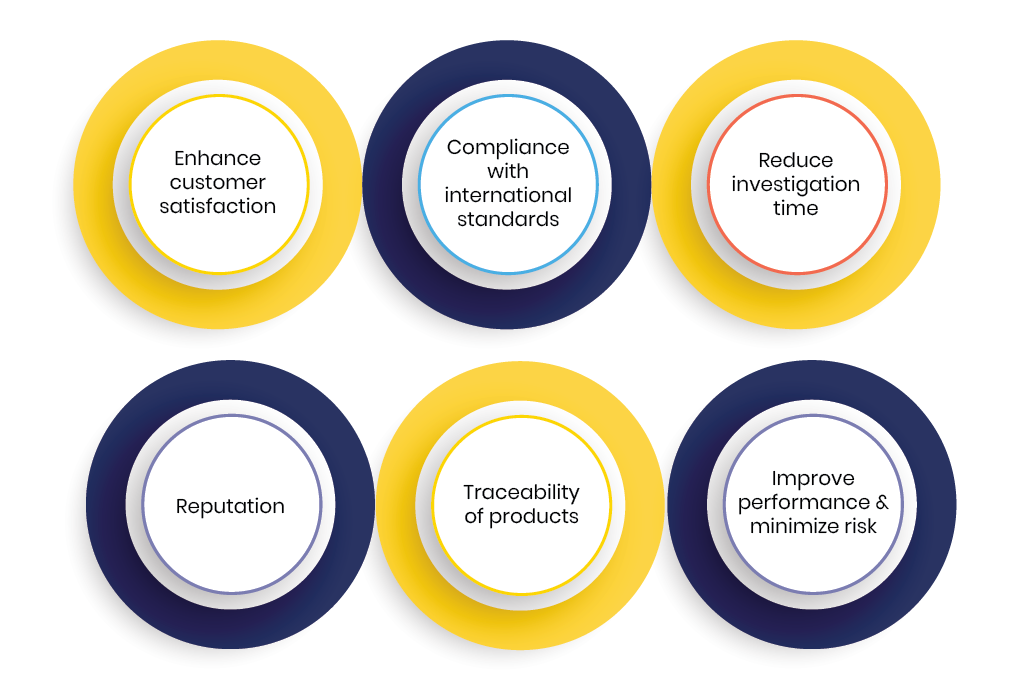ISO 22000
FSMS Certification
Customer is the king, and let your business be the preferred choice of their highness. How
to make that a reality and make your business grow exponentially? The answer is simple,
by gaining trust. The best way to portray the worthiness of the business and the efficiency
of the product or services and showcase you possess quality on par with the market.
How to Start ISO 22000 Certification



What Is An ISMS ISO 22000
Food safety is a global priority, and all food producers, regardless of size or product, are responsible for ensuring the safety of their products to protect consumer health. ISO 22000 sets the requirements for Food Safety Management Systems (FSMS) to help organizations meet these responsibilities effectively.
Overview ogf ISO 22000ISO 22000 is an international standard introduced by the International Organization for Standardization (ISO) to address food safety. Food safety concerns arise at every stage of the food chain, making it essential to have comprehensive control measures. This requires collective efforts from all stakeholders involved in the food supply chain.
Key Elements of ISO 22000 FSMS The ISO 22000 framework for Food Safety Management Systems encompasses the following elements:
- Interactive Communication: Ensures seamless exchange of information across the food chain.
- System Management: Integrates food safety measures with overall management practices.
- Prerequisite Programs (PRPs): Establishes foundational requirements to maintain a hygienic environment.
- Hazard Analysis and Critical Control Points (HACCP): Utilizes HACCP principles to identify and control food safety risks.
Integration with other Standards
ISO 22000 aligns with ISO 9001 to improve compatibility and can be implemented independently or integrated with other management system standards. It consolidates HACCP principles and combines them with prerequisite programs through auditable requirements.
Hazard Analysis and control
A central aspect of ISO 22000 is conducting a hazard analysis to assess and control potential threats in the food chain. This process involves:
- Identifying hazards related to processes and facilities.
- Evaluating threats that require control and those that do not.
- Establishing control measures using PRPs and HACCP planning.
Hazard analysis ensures the organization has a robust strategy to address potential risks effectively.
Global Recognition and Certification
ISO 22000 is a Global Food Safety Initiative (GFSI)-approved standard and is integral to the Food Safety System Certification (FSSC) Scheme, FS22000. The FSSC 22000 scheme provides a framework for auditing and certifying Food Safety Management Systems and includes:
- Certification for FSMS and combined FSMS-QMS (FSSC 22000-Quality).
- Sector-specific prerequisite programs (PRPs) based on international standards.
The ISO 22000 standard empowers organizations to implement effective food safety practices, ensuring consumer trust and compliance with global food safety regulations.
ISO 22000 FSMS Certification
ISO 22000 FSMS certification verifies that the specific principles of food safety are effectively applied throughout the food chain to ensure the safety and suitability of food for human consumption. The certification is pursued for the following key reasons:
- Ensures Integrity of the Food Supply Chain: Maintains the safety and reliability of the food production and distribution process.
- Builds Consumer Trust: Helps consumers identify and rely on trusted food products.
- Serves as a Marketing Tool: Enhances the reputation and marketability of food products.
- Enables Better Pricing: Facilitates achieving competitive pricing by demonstrating adherence to global food safety standards.
Helps in getting comparatively a better price
The ISO 22000 series consists of the following specifications:
- ISO 22000: Food Safety Management Systems (FSMS) – Requirements for any organization within the food chain.
- ISO 22001: Guidelines for applying ISO 9001:2000 specifically to food and drink-related industries or organizations.
- ISO/TS 22002: Prerequisite programs for Food Safety – Requirements for food chain organizations.
- ISO/TS 22003: Food Safety Management Systems – Requirements for bodies providing audits and certifications of FSMS.
- ISO/TS 22004: Food Safety Management Systems (FSMS) – Guidance on applying ISO 22000:2005.
- ISO 22005: Traceability in the feed and food chain – General principles, system design, and implementation requirements.
- ISO 22006: Quality Management System (QMS) – Guidance on applying ISO 9001:2000 to crop production.

